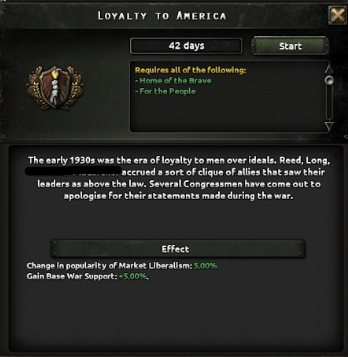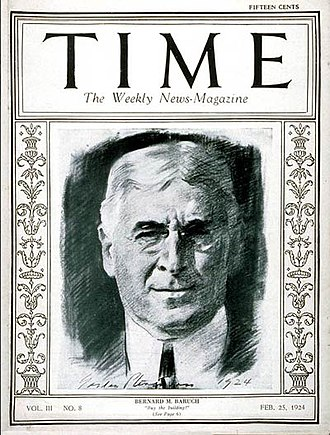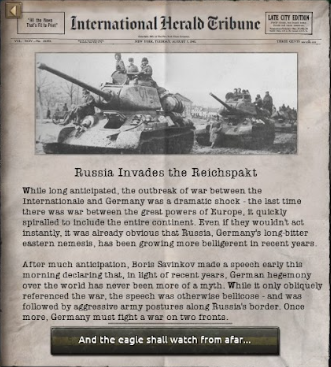Interlude 5 :TRANSCRIPT OF THE WAR CABINET MEETING
Location: Cabinet Room, The White House, Washington D.C.Date: February 26, 1940
Time: 09:30 AM
Attendees:
- President Alf Landon
- Chief of the General Staff General Douglas MacArthur
- General Dwight D. Eisenhower
- Secretary of the Treasury and Commerce Robert F. Wagner
- FBI Director J. Edgar Hoover

"It is easy to know when a government wishes for peace by observing the character of the person sent to negotiate for it."
- Napoleon Bonaparte.
Chief of the General Staff General Douglas MacArthur: Welcome, Hoover. Take a seat. The President will be here shortly.
(Minutes later, the doors swing open, and President Alf Landon strides into the room. He takes a moment to shake hands with each of the attendees. Once he reaches the head of the table, he sits down and gets straight to business.)
President Alf Landon: Gentlemen, before we begin, let me congratulate all of you. In less than a month, we have dismantled one of the Entente’s primary powers. Canada’s collapse has been swift—far swifter than even our most optimistic projections anticipated.
Chief of the General Staff General Douglas MacArthur: With all due respect, Mr. President, while our success has been undeniable, we must acknowledge that the Canadians themselves played a role in their own downfall. Their will to resist was minimal, at least among the civilian population. As of now, our forces have sustained fewer than 10,000 casualties in total—a remarkably low figure considering the scale of the campaign.
President Alf Landon: And what of enemy casualties?
FBI Director J. Edgar Hoover: According to our latest intelligence reports, Canadian forces have suffered over 70,000 casualties, including approximately 5,000 civilians. However, there are still regions where the situation remains unstable. We have not achieved total control over the country. There are still pockets of resistance—particularly in Quebec, the Yukon, and parts of the Maritimes.
President Alf Landon: Thank you, Director Hoover. I expect a detailed report on these problem areas at our next meeting. Now, General Eisenhower, what is the current status of our forces on the front lines?
(MacArthur looks as if he is about to respond, but Eisenhower leans forward slightly, speaking before he can.)
General Dwight D. Eisenhower: Overall, our troops remain in high spirits. The swift victory has prevented a prolonged conflict, and most of our units have performed exceptionally well. However, our main concern now is logistics. We are deep into winter, and despite our best efforts, supply lines are starting to strain. The further north we push, the more difficult it becomes to maintain an uninterrupted flow of supplies.
President Alf Landon: Is this affecting the siege of Quebec?
General Dwight D. Eisenhower: Not yet significantly, but if the siege drags on, it could become critical before spring arrives.
FBI Director J. Edgar Hoover: The siege could end much sooner if the Army were willing to employ more aggressive counterinsurgency tactics. The methods we refined during the Civil War in Washington and Chicago proved highly effective. Our men are wasting too much time clearing buildings that other units had already declared secured. If we take harsher measures, we can break the back of the resistance within days.
General Douglas MacArthur: I disagree, Hoover. Our current strategy is the correct one. We cannot afford to further alienate the civilian population. Winning over the hearts and minds of the Canadian people is critical. Already, nearly half of them opposed their own government. If we resort to indiscriminate bombings or summary executions, all we will do is turn them against us. That is why I have insisted on deploying the Red Cross and ensuring our medical teams provide assistance to civilians.
FBI Director J. Edgar Hoover: With all due respect, General, those supplies would be better used on our own soldiers.
General Douglas MacArthur: And they are being used. But we must think beyond immediate military gains. A defeated enemy can become an ally if we handle them correctly.
FBI Director J. Edgar Hoover: That was not our position when we fought the Civil War.
General Douglas MacArthur: The Civil War was an entirely different matter. We were dealing with traitors who had risen against their own country. Here, we are dealing with foreign citizens—citizens who, if treated properly, could become collaborators rather than rebels.
President Alf Landon: General Eisenhower, do you believe Quebec will fall before the end of the month?
General Dwight D. Eisenhower: It’s difficult to say with certainty, Mr. President. We are making gradual progress through the city’s outskirts, but resistance remains fierce in key sectors. General Bradley is leading the operation and making tactical decisions based on conditions on the ground.
President Alf Landon: Why is Bradley not here?

General Douglas MacArthur: He sends his apologies, Mr. President. He believes his presence is required in Quebec to oversee the siege directly.
President Alf Landon: Understood. And what is his strategy?
General Douglas MacArthur: During the planning of Operation Fallen Crown, we identified King Edward VIII as the linchpin of the Canadian regime. Without him, the monarchy will collapse. That is why we have encircled Quebec and severed the railway lines connecting the city to the north. Without access to that rail network, the King’s armored train is trapped. He cannot escape south, east, or west. His only options are surrender—or a desperate last stand.
President Alf Landon: Do we have updated intelligence on his location?
FBI Director J. Edgar Hoover: The train remains stationary in the north, outside the reach of our bombers. However, we are tightening the noose. Eventually, he will have no way out. The only question is how long he will hold out before accepting the inevitable.
President Alf Landon: We must ensure that no escape route remains open for them by sea. If the monarchy intends to evacuate its leadership or bring in reinforcements, we need to cut them off entirely. How is the Navy handling the situation?
General Douglas MacArthur: From the latest reports, Admiral Halsey has effectively sealed off all major Canadian ports, preventing the arrival of reinforcements or supplies from the rest of the Entente. Over the past month alone, we've intercepted and sunk several enemy convoys attempting to slip through the blockade. As it stands, their access to external support has been severely crippled.

President Alf Landon: And what about the Royal Navy? I haven't seen any concrete intelligence on their movements. If they choose to engage us directly, we need to be prepared for that possibility.
FBI Director J. Edgar Hoover: Our latest intelligence suggests that the bulk of the Royal Navy’s remaining forces are docked in Halifax. Montgomery has reportedly ordered his sailors to take up arms in preparation for a last stand to defend the city. That said, their ability to mount any meaningful naval resistance is practically nonexistent at this point. We hold complete supremacy at sea.
(President Landon rises from his seat and walks to a side table where a pot of coffee sits. He pours himself a cup, taking a moment to reflect as he sips. Finally, he turns to Robert F. Wagner, who has been reviewing a stack of documents.)
President Alf Landon: Wagner, let’s move on to the next topic.
Secretary of Treasury and Commerce Robert F. Wagner: Yes, Mr. President. This morning, we received an official communiqué from the German embassy here in Washington.
(Wagner pulls out a document from his folder and distributes copies to those present. It is the peace proposal sent by Churchill.)
President Alf Landon: Very well. Let’s take a thirty-minute recess to review this proposal.
President Alf Landon: All right, gentlemen. We've all had time to review Churchill’s proposal. Before we make a decision, I want to hear your opinions.
Secretary of Treasury and Commerce Robert F. Wagner:Mr. President, from an economic standpoint, this offer does have some appealing aspects. Reparations and preferential access to Canadian resources could provide a significant boost to our economy, especially as we are still recovering from the devastation of the Civil War. Many industries remain fragile, and securing a favorable trade agreement could ensure long-term stability and economic growth.
FBI Director J. Edgar Hoover: With all due respect, Secretary Wagner, I find these economic incentives wholly insufficient. We cannot base our strategy on agreements with an exiled government on the verge of collapse. The reality is that this treaty guarantees us nothing. In the long run, it is an empty proposal. Who's to say the Windsors will still rule Canada once we withdraw?
President Landon: I agree with Hoover on this, Robert. Given the current situation, I fail to see how a trade or economic agreement would be of much use.
General Dwight D. Eisenhower: Today it's Edward, tomorrow it could be King. Who knows? The nationalists might take power next. Or worse, the syndicalists.
President Landon: My intelligence suggests that the syndicalists have little to no real influence in Canada. They have no tangible power over protests or demonstrations.
FBI Director J. Edgar Hoover: That’s exactly what they said about the syndicalists in France before the revolution…"
Secretary of Treasury and Commerce Robert F. Wagner: We’re getting off-topic, Director Hoover. I’m here to advise the President on the economic implications of this matter. Personally, I still believe that peace with the Entente is the best solution. However, as much as I value economic agreements over territorial expansion, I do not believe this deal benefits us. I would push for better terms.
General Dwight D. Eisenhower: I want to make it clear that we are not here to discuss conquests. No one in the General Staff has proposed occupying Canada. That would be a strategic and political disaster. If the Canadian people hate the Windsors, they despise the idea of American occupation even more. If we want a stable Canada in the future, we cannot treat it as spoils of war. Our objective is to free Canada from Edward—unless, of course, we sign a peace deal.
President Landon: And this is precisely where I see the problem. What they are offering is insignificant compared to what they are asking for. Releasing prisoners of war is reasonable; I have no issue with that. But why should I hand over Kim Philby? Are we seriously expected to let them judge a man who was acting under their own orders? It makes no sense.
Secretary of the Treasury and Commerce Robert F. Wagner: The Canadians continue to deny involvement in the assassination attempt. They claim Philby acted alone.
President Alf Landon: Hoover, did you find him guilty?
FBI Director J. Edgar Hoover: Yes, Mr. President. He has confessed to the attack.
President Alf Landon: Then interrogate him again. Where are you keeping him?
(Hoover hesitates.)
FBI Director J. Edgar Hoover: I cannot disclose that information, Mr. President.
President Alf Landon: Are you joking, Hoover? I am the President of the United States. Are you seriously telling me that I don’t have the right to know the whereabouts of a captured foreign spy under my administration?
(A tense silence fills the room.)
FBI Director J. Edgar Hoover: He is being held in a secure location, Mr. President. If you wish, I can show you after the meeting, but I do not believe this is the appropriate place to discuss it. Regarding the agent, I doubt he has much more to reveal.
General Dwight D. Eisenhower: I find that hard to believe, considering how desperate Churchill is to get him back. If he wasn’t valuable, they wouldn’t be demanding him so insistently.
FBI Director J. Edgar Hoover: You might be right. Besides, what message would we be sending if we hand him over? That they can attempt to assassinate our government officials and face no serious consequences?
President Alf Landon: Precisely. And even more so, we cannot abandon Mackenzie King and his republican movement. To betray them now would be dishonorable, and I doubt anyone in this room is willing to do that. Personally, I believe our best course of action is to support them and establish a Canadian Republic under their leadership. But I want to hear everyone’s thoughts before we proceed.
Secretary of the Treasury and Commerce Robert F. Wagner: I believe we could negotiate better terms, but this current offer is unacceptable. Churchill knows he has limited options, and he needs us just as much as we might need stability in the north. I oppose accepting these conditions.
General Dwight D. Eisenhower: I agree. I want this war to end, but this peace deal does not benefit us. We cannot abandon our allies, nor accept conditions that will bind us politically in the future. I don’t want us to be forced to intervene in Canada six months from now to stop a civil war.
FBI Director J. Edgar Hoover: I concur. The most stable future for Canada involves us and the republican movement. That being said, the FBI will follow whatever orders the President gives.
General Dwight D. Eisenhower: The Army as well. But what about Congress?
President Alf Landon: Once we finalize our decision, I will speak with the Democrats. However, Taft and Dewey have already made it abundantly clear that the Republicans oppose this agreement.
General Dwight D. Eisenhower: Even a staunch isolationist like Senator Taft is willing to continue the war?
President Alf Landon: In Taft’s own words: "Canada is North America." That alone ensures we will have enough support in Congress to continue the war. But he has also made it clear that the Caribbean is the limit. No American soldier should die far from home for a foreign cause. Our fight is a response to an attack, and our goal remains the liberation of the Canadian people.
Chief of the General Staff, General Douglas MacArthur: I have stayed quiet because I wanted to hear every perspective before speaking. But I believe we must remember why we started this war. It wasn’t for territorial ambitions, nor economic gain, nor even revenge. A member of the U.S. government was attacked on American soil by officers of an enemy nation. That alone is a casus belli. However, it has now become clear to me that this war cannot end without the complete removal of the British monarchy from North America. We must aid the Canadian people in overthrowing this decadent and authoritarian regime. We cannot afford to simply restore the old order with a signature and pretend none of this happened. The time has come to bring Edward’s rule to an end."
(Silence in the room)
Chief of the General Staff, General Douglas MacArthur: As much as I wish to end the bloodshed and destruction, America cannot remain secure with a warmonger on its northern border. This conflict will not be resolved through a fragile peace dictated by an exiled government. We must liberate Canada and begin establishing a republican government in the territories under our control—one that is aligned with Washington. We must reject Churchill’s proposal outright.
President Alf Landon: I was already leaning toward this conclusion before the meeting, but now I am certain. We will reject Churchill’s offer. We cannot end this war with an agreement that weakens us and leaves the door open for future threats. We will wait for the Entente to fall and negotiate with its remnants on our terms. We must rescue Mackenzie King from his prison outside Ottawa and form a provisional cabinet. We will finish what we failed to do in 1812.
(President Landon leans back in his chair and exhales)
Chief of the General Staff, General Douglas MacArthur: But remember, Mr. President. We do not want to intervene beyond North America. On that, I agree with Taft.
President Alf Landon: This war is about America and the security of our continent. I will never order our troops to fight beyond our limits.
----------------------------------------------------------------------------------------------------------------------------------------------------------
The war is not over!
We are getting closer to the Democrat and Republican National Conventions on June and July! Some of the primaries had already begun! I have some surprises for them.
Maybe... The Canadians are very angry at them.Uh oh, are the Canadian people going to give the Windsors the Romanov treatment?
Churchill is a pathetic fool. Any real American would never accept those terms, especially at the loss of American lives and Entente's delusions of grandeur and imperialism.
Time to teach Eddie and his Imperialists a lesson that will never be forgotten. Up with the Stars!
Landon should push for an unconditional victory, it's his best chance of securing re-election.
As for the others, I don't know what would be the best result for them.
This is, without a doubt, a terrible deal—both in terms of gameplay and within the timeline. You can’t bargain with something that’s no longer yours to give. Canada is already on its last legs, its government in disarray, and its ability to resist effectively shattered. It’s only a matter of time before it fully falls under American influence, not as an adversary, but as a loyal ally of this new United States . Accepting such terms... would be foolish or naive.Washington has the momentum, they have the right to force their own terms upon Canada. Churchill's proposal is going to be rejected by all factions I think. A fellow republican government in Canada is more friendly to the US than an autocratic one.
"Non sum rex, sed Caesar." (I am not a king, but a Caesar.)And Julius Caesar is said to have said something similar, though I forget the context. MacArthur knows his history.
According to what I’ve seen, the phrase is apocryphal and seems to have been said after Mark Antony offered him a diadem. In this way, he dispelled the rumors that he was going to become king.
I like how Douglas I sound.
Attachments
- 4









































